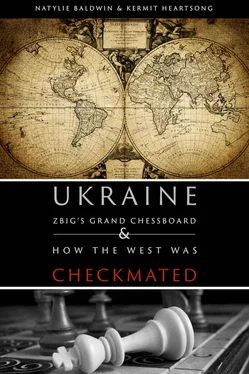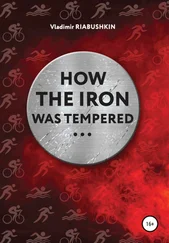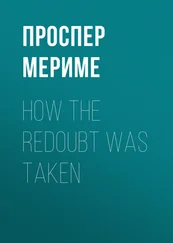Kermit Heartsong - Ukraine - ZBIG's Grand Chess Board & How The West Was Checkmated
Здесь есть возможность читать онлайн «Kermit Heartsong - Ukraine - ZBIG's Grand Chess Board & How The West Was Checkmated» весь текст электронной книги совершенно бесплатно (целиком полную версию без сокращений). В некоторых случаях можно слушать аудио, скачать через торрент в формате fb2 и присутствует краткое содержание. Год выпуска: 2015, Жанр: Политика, на английском языке. Описание произведения, (предисловие) а так же отзывы посетителей доступны на портале библиотеки ЛибКат.
- Название:Ukraine: ZBIG's Grand Chess Board & How The West Was Checkmated
- Автор:
- Жанр:
- Год:2015
- ISBN:нет данных
- Рейтинг книги:4 / 5. Голосов: 1
-
Избранное:Добавить в избранное
- Отзывы:
-
Ваша оценка:
- 80
- 1
- 2
- 3
- 4
- 5
Ukraine: ZBIG's Grand Chess Board & How The West Was Checkmated: краткое содержание, описание и аннотация
Предлагаем к чтению аннотацию, описание, краткое содержание или предисловие (зависит от того, что написал сам автор книги «Ukraine: ZBIG's Grand Chess Board & How The West Was Checkmated»). Если вы не нашли необходимую информацию о книге — напишите в комментариях, мы постараемся отыскать её.
Ukraine: ZBIG's Grand Chess Board & How The West Was Checkmated — читать онлайн бесплатно полную книгу (весь текст) целиком
Ниже представлен текст книги, разбитый по страницам. Система сохранения места последней прочитанной страницы, позволяет с удобством читать онлайн бесплатно книгу «Ukraine: ZBIG's Grand Chess Board & How The West Was Checkmated», без необходимости каждый раз заново искать на чём Вы остановились. Поставьте закладку, и сможете в любой момент перейти на страницу, на которой закончили чтение.
Интервал:
Закладка:
Brzeziński earned a master’s degree from McGill University in Montreal with a focus on the Soviet Union, followed by a PhD at Harvard with a focus on the Russian Revolution and the leadership of Lenin and Stalin. He became an academic at Harvard and then Columbia University where he taught and mentored Madeleine Albright. He served as an advisor to the Kennedy presidential campaign and then was a member of the State Department’s Council of Policy Planning from 1966–1968. In 1973, he helped establish the Trilateral Commission with David Rockefeller. Based on ideas Brzeziński spelled out in an article he published in Foreign Affairs in 1970, the Trilateral Commission was to be the organizational foundation of a club of developed nations that included those of Europe, Japan and the US to balance world power away from the Soviet Union and China. The club held annual meetings that included the elites of Europe, Japan, and the US, along with notables in world trade, international banking and the establishment media (Lepic 2004).
Throughout the Cold War, Brzeziński supported a policy of engagement with Eastern Europe, including dissidents, believing that divisions within Eastern Europe would destabilize the Soviet Union and hasten its breakup along national lines. He gave little to no support for any rapprochement with the Soviet Union and opposed Charles de Gaulle’s vision of a Eurasian project of “Europe from the Atlantic to the Urals.”
Brzeziński eventually served as national security advisor in the Carter administration. Touted as the Democratic Party’s counterpoint to Henry Kissinger (and implicitly Kissinger’s détente approach toward the USSR), his aggressive anti-Russian views often clashed with those of Carter’s Secretary of State, Cyrus Vance, who was in the Realist camp and opposed Brzeziński’s desire to strengthen ties to China while keeping the Soviet Union at a distance. He and others in the administration argued that such “triangulation” could lead to dangerous and unnecessary perceptions of aggression toward the Soviet Union (Wikipedia, “Zbigniew Brzeziński”; Lepic 2004). Due to Brzeziński’s machinations behind Vance’s back to convince Carter to undertake the disastrous plan to rescue American hostages in Iran instead of continuing to use diplomatic channels, Vance — who had come to oppose using military intervention to solve international problems — resigned. Upon leaving office, Vance characterized Brzeziński’s aggression and Machiavellian tactics as “evil” (Brinkley 2002).
During his tenure, Brzeziński was also the architect of the plan to goad the Soviet Union into its own “Vietnam” quagmire by arming and supporting Islamic mujahedeen against the Soviet-backed government in Afghanistan. The plan, with the assistance of the Pakistan intelligence service, was put into place toward the end of Carter’s presidency and in 1979, the Soviet Union, in fact, responded as Brzeziński had hoped, embarking on a decade-long war in the nation that is not called the “graveyard of empires” for nothing.
When the French magazine Le Nouvel Observateur interviewed Brzeziński in 1998, he admitted that while he was national security advisor, he played a major role in setting the Afghanistan trap for the Soviet Union to get bogged down in a war. He also reiterated that he had no regrets about the policy, underscoring the fact that he does indeed see the nations and peoples of the world as pieces on a strategic game board, having no regard for the resulting death of a million Afghans and thousands of Soviets, demolition of a country that at the time had minimal religious fanaticism and better conditions for women, or blowback toward his own adopted country (Cohen 2001; Khalidi 1991). A pertinent excerpt of the exchange follows:
Le Nouvel Observateur: Former CIA director, Robert Gates, says in his memoirs: the American secret services assisted Afghan mujahedeen six months before the Soviet invasion. By that time, you were President Carter’s advisor and you played a key role on this. Do you confirm it?
Brzeziński: Yes. According to the official version of the story, the CIA began to assist mujahedeen in the year 1980, that is, after the invasion of the Soviet army against Afghanistan on December 24, 1979. But the truth that remained secret until today is quite different: it was on July 3, 1979 that President Carter signed his first order on the secret assistance to Kabul’s pro-Soviet regime opponents. That day I wrote a memorandum to the President in which I told him that that assistance would cause the Soviet intervention… We did not force the Russian intervention, we just, conscientiously, increased the intervention possibilities.
NO: When the Soviets justified their intervention by affirming they were fighting against a secret American interference nobody believed them, though they were telling the truth. Don’t you regret it?
B: Regret what? That secret operation was an excellent idea. Its objective was to lead the Russians to the Afghan trap, and you want me to regret it? The very same day the Soviets crossed the Afghan border I wrote the following to President Carter: “This is our chance to give Russia its Viet Nam.”
NO: Aren’t you sorry either for favoring Islamic fundamentalism and providing weapons and consultancies to future terrorists?
B: What is the most important thing when you look at world history, the Taliban or the fall of the Soviet empire? Some excited Islamists or the liberation of Central Europe and the end of the Cold War? (Lepic 2004)
In 1989 Brzeziński quit his academic post to work on the “Ukraine project” which worked on behalf of Ukrainian independence.
Brzeziński also became active behind the scenes to use Islamic radicals in Chechnya to destabilize Russia via the American Committee for Peace in Chechnya (ACPC). ACPC was founded by Freedom House — a conservative nonprofit that has historically been used as a front for CIA operations (Chomsky and Herman 1988). ACPC was an organization with a plethora of Neoconservatives on its board and membership roster. It has received up to 80 percent of its funding from the notorious National Endowment for Democracy (NED), an organization funded by the US Congress. NED was established in the early 1980s in response to congressional hearings, namely by the Church Committee, that exposed the CIA’s covert efforts to destabilize and overthrow foreign governments that were anathema to the US political elite. Rather than cease these unpopular — and often violent and illegal — covert operations, they were simply transferred to another organization that obscured these nefarious activities under the guise of building civil society and democracy. Government officials who helped draft the legislation creating NED have admitted that NED now does much of what the CIA used to do in this arena (Sourcewatch; Laughland 2004; Blum 2000).
French journalist Arthur Lepic states in his 2004 article on Brzeziński’s policies toward the Soviet Union and Russia, “The Outrageous Strategy to Destroy Russia,” that Brzeziński was involved in a plan to pave the way for a pipeline deal that would undermine Russia’s potential to gain from fossil fuel resources in the Caspian region:
During the ‘90s he was the special envoy of the American president to promote the most important oil infrastructure project of the world: the Baku-Tbilissi-Ceyhan pipeline which was his best opportunity to prevent the resurgence of Russia. He has also been, since 1999, the president of the American Committee for Peace in Chechnya, whose headquarters are located at the Freedom House facility. This position allows him to intervene in peace negotiations between the Russian government and independence fighters led by Mashkadov. However, the truth behind these good will “democratic” activities [was] to assist independence followers to maintain a war in the area, like the Afghan one, to weaken Russia and to keep it away from the gains of the Caspian Sea. (Lepic 2004)
Читать дальшеИнтервал:
Закладка:
Похожие книги на «Ukraine: ZBIG's Grand Chess Board & How The West Was Checkmated»
Представляем Вашему вниманию похожие книги на «Ukraine: ZBIG's Grand Chess Board & How The West Was Checkmated» списком для выбора. Мы отобрали схожую по названию и смыслу литературу в надежде предоставить читателям больше вариантов отыскать новые, интересные, ещё непрочитанные произведения.
Обсуждение, отзывы о книге «Ukraine: ZBIG's Grand Chess Board & How The West Was Checkmated» и просто собственные мнения читателей. Оставьте ваши комментарии, напишите, что Вы думаете о произведении, его смысле или главных героях. Укажите что конкретно понравилось, а что нет, и почему Вы так считаете.











